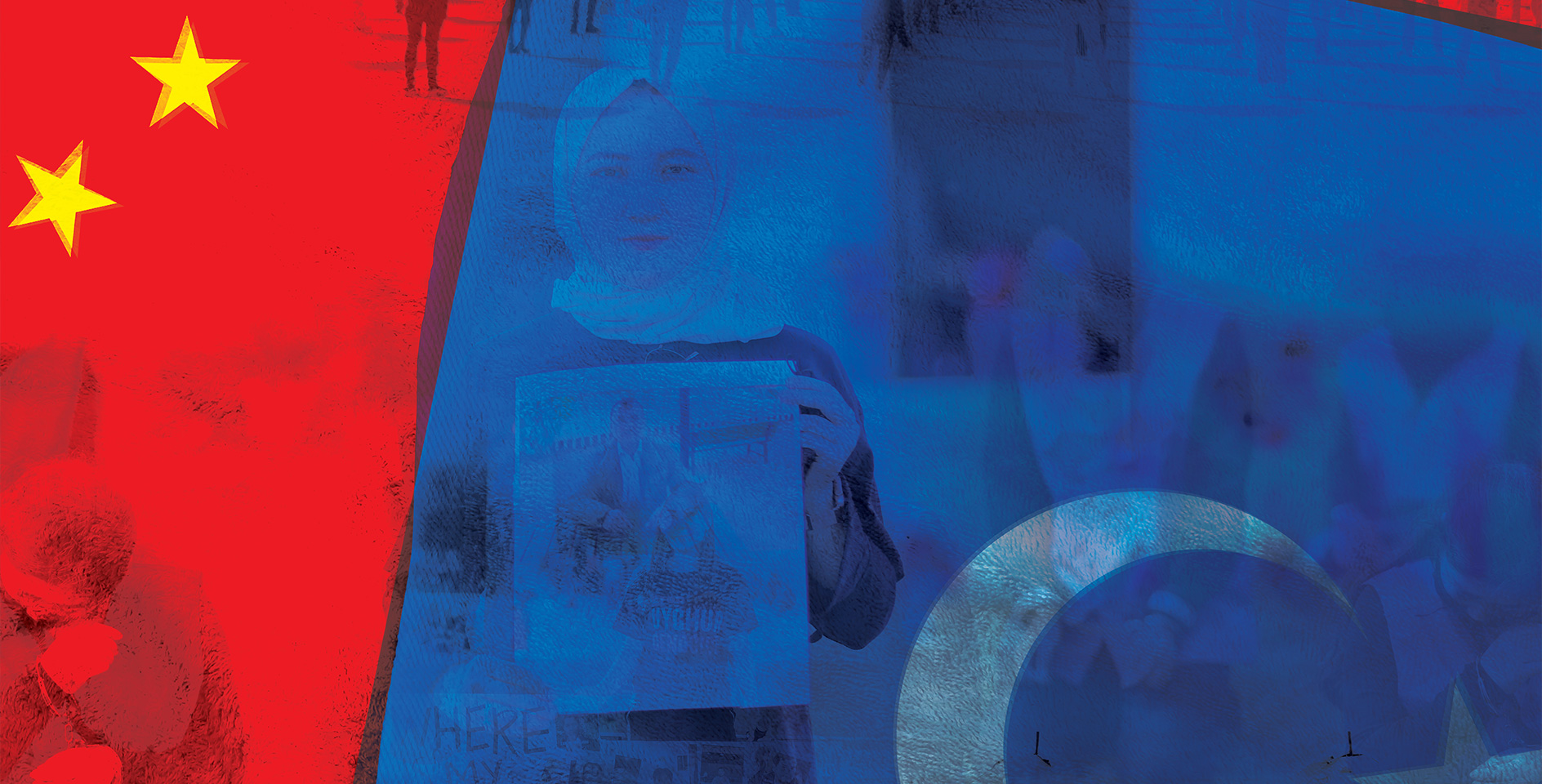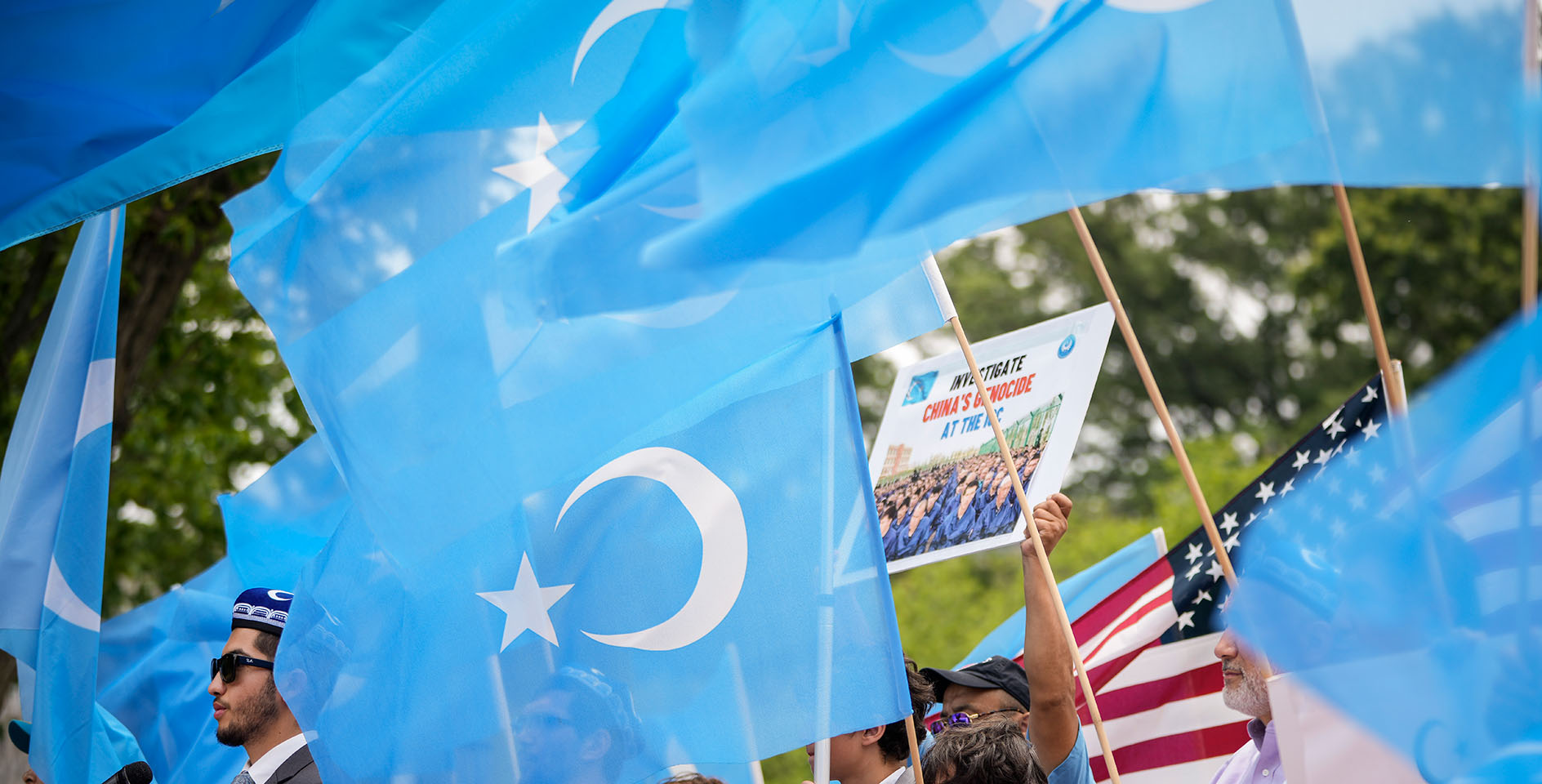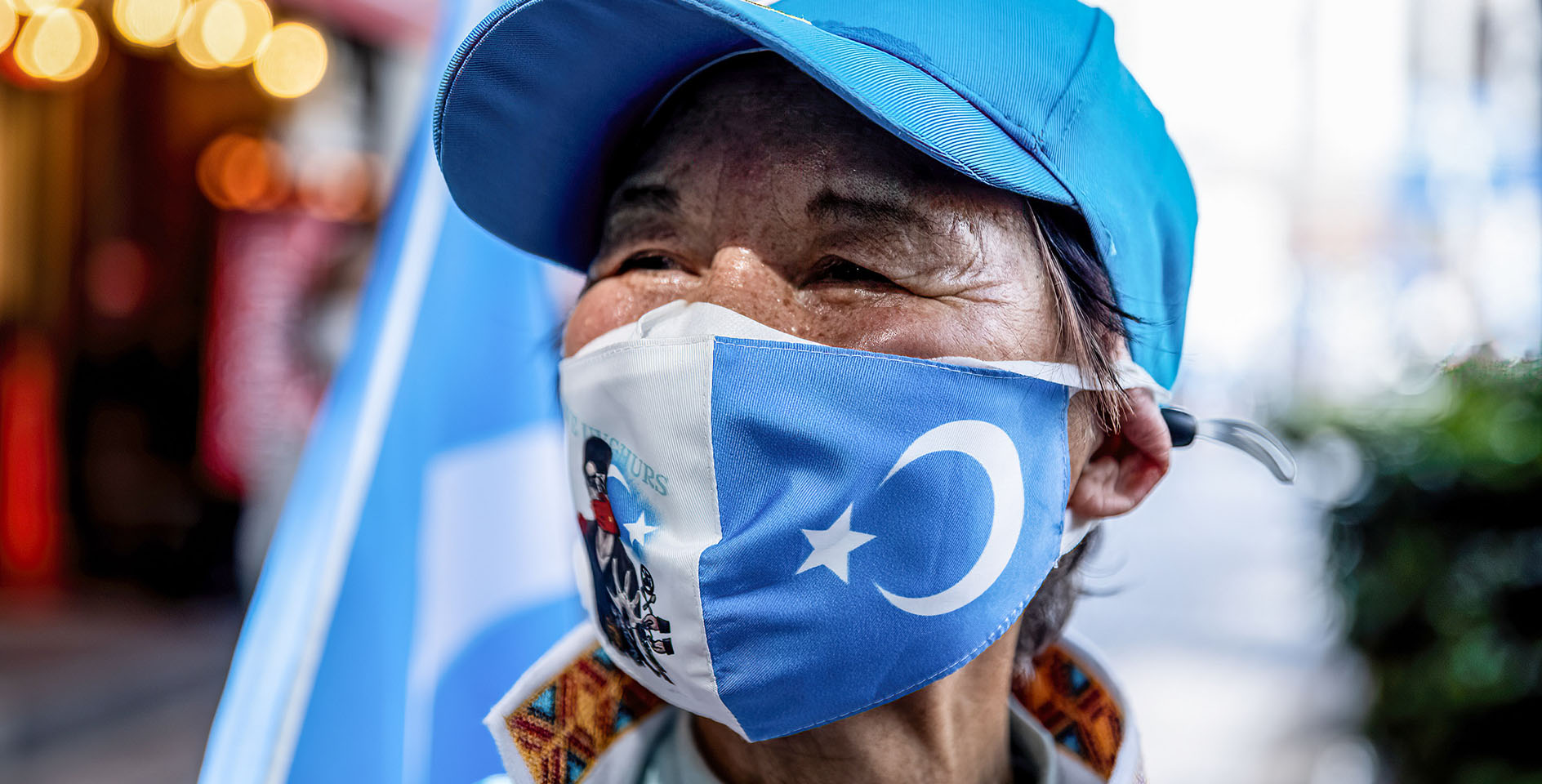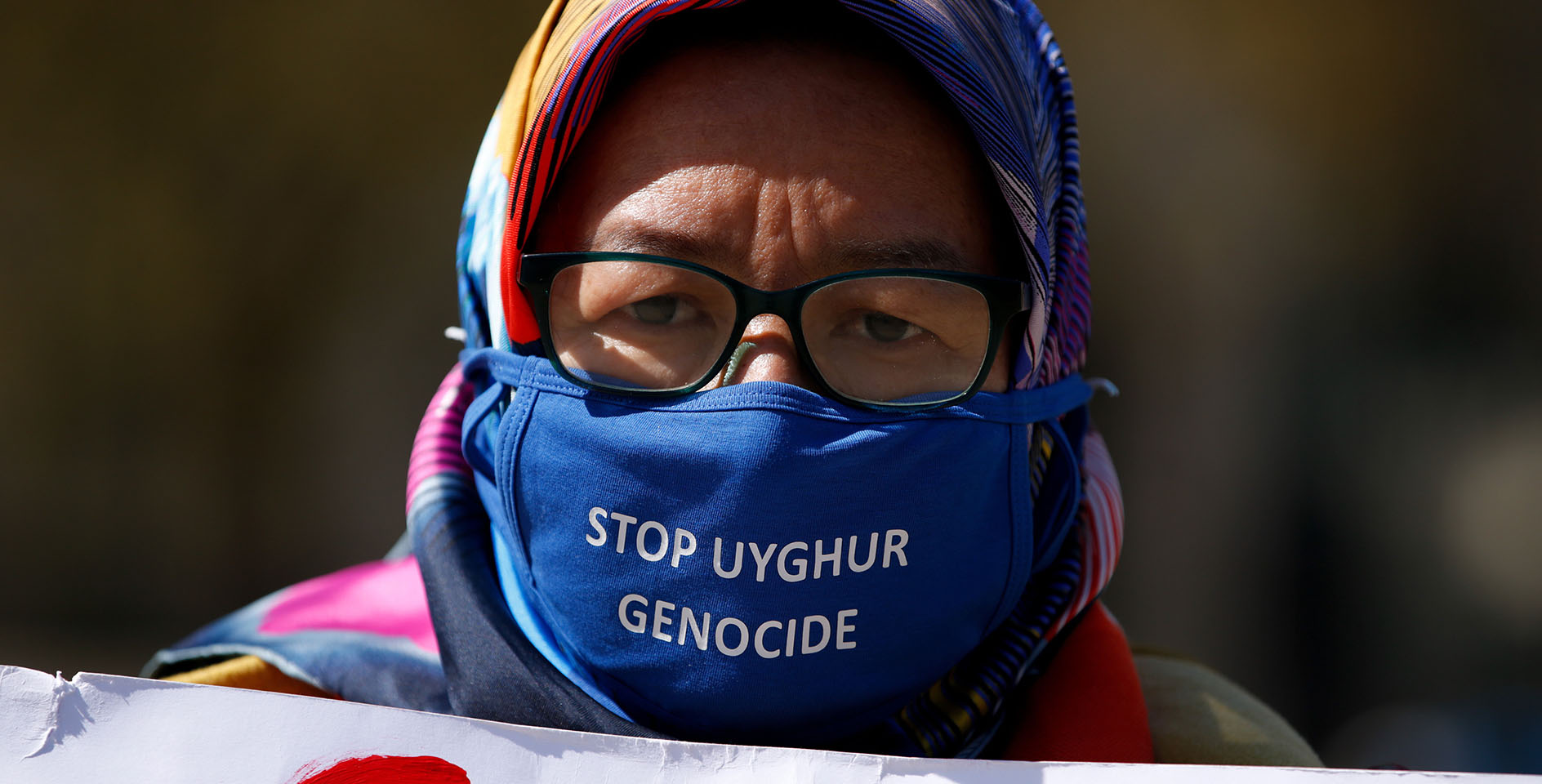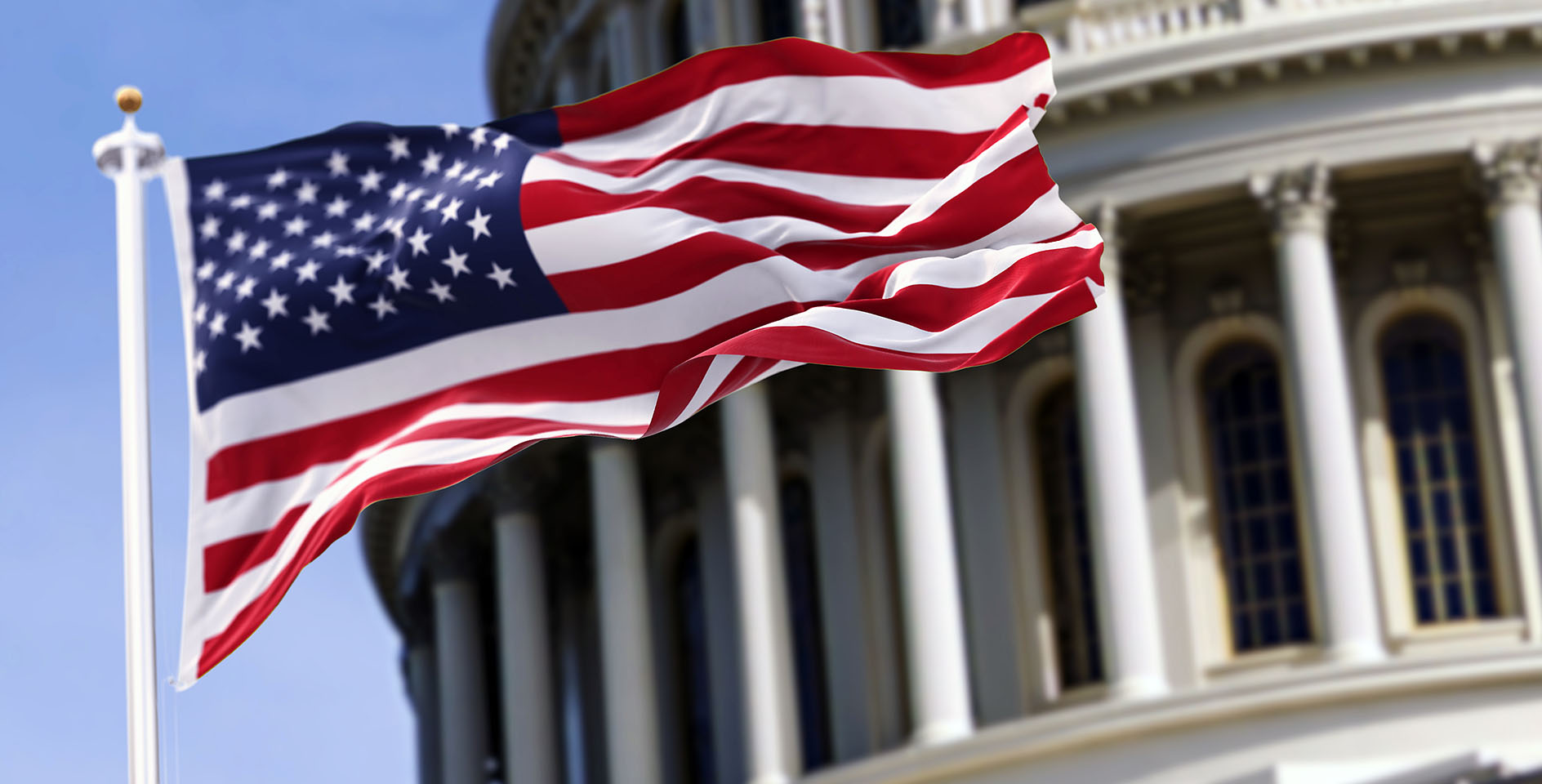For the past four years, the world has watched one alarming report of Uyghur genocide after another trickle out from Xinjiang, China’s westernmost territory. On Oct. 5, 2021, however, a former Chinese prison guard shared particularly horrifying accounts of the torture Uyghurs endure in Xinjiang “reeducation” camps:
“Kick them, beat them (until they’re) bruised and swollen. Until they kneel on the floor crying . . . Everyone uses different methods. Some even use a wrecking bar, or iron chains with locks . . . Police would step on the suspect’s face and tell him to confess.”
These revelations, reported by CNN, also included accounts of extreme torture, including sexual abuse and even gang rapes.1https://www.cnn.com/2021/10/04/china/xinjiang-detective-torture-intl-hnk-dst/index.html They are, sadly, part of a broader plan.
Since 2017, the Chinese Communist Party (CCP) has waged a systemic campaign of oppression and persecution against the Uyghur people, a predominantly Muslim and Turkic-speaking ethnic group. The geographic scope of the CCP’s campaign against Uyghurs is global, but primarily restricted to Xinjiang, where Uyghurs have lived for centuries. Under the guise of national security, the CCP is seeking to “pacify” the region with totalitarian tactics like pervasive surveillance, thought control, ideological reeducation, and forced birth control.
The CCP’s oppression of the Uyghur people does not stop there. Beginning in 2018, reports began to emerge chronicling how China is exploiting this group vocationally. China is the world’s largest producer of cotton and solar panels, and the vast majority of these exports come from Xinjiang. For many Uyghurs, the reeducation camps are a launching pad to compulsory labor in these industries. Whether in Xinjiang or throughout China, the CCP is relocating Uyghurs and exploiting them for free or underpaid labor.
Formal determination of genocide against Uyghurs
In response, the Department of State labeled these atrocities as a genocide on Jan. 19, 2021—the final day of the Trump administration.2https://2017-2021.state.gov/determination-of-the-secretary-of-state-on-atrocities-in-xinjiang/index.html President Joe Biden has upheld this finding.3https://www.reuters.com/article/us-china-usa-xinjiang/u-s-says-no-change-in-its-genocide-determination-for-chinas-xinjiang-idUSKBN2B12LG The label carries significant weight, beyond the bipartisan agreement surrounding it. The United States is a signatory of the Genocide Convention of 1948, which obligates member states to “prevent and punish” genocide anywhere it occurs.4https://www.un.org/en/genocideprevention/genocide-convention.shtml Issuing a formal genocide finding is the first step in this process.
Deeper than America’s legal obligations, though, is the moral imperative. Words matter, especially in politics. Genocide, according to the 1948 Convention, is specific action taken “with intent to destroy” an ethnic or religious people group.5https://www.un.org/en/genocideprevention/genocide-convention.shtml Confronting evil of this magnitude begins with naming it accurately. The United States has taken this first step.
It is, however, just that: a first step. For America to meet its legal and moral obligations in the face of an ongoing genocide, tough diplomacy is necessary, but wholly insufficient apart from a broader effort. Indeed, subsequent atrocity determinations from parliaments in Canada,6https://www.bbc.com/news/world-us-canada-56163220 Britain,7https://www.bbc.com/news/uk-politics-56843368 the Netherlands,8https://www.reuters.com/article/us-netherlands-china-uighurs/dutch-parliament-chinas-treatment-of-uighurs-is-genocide-idUSKBN2AP2CI and Lithuania9https://www.reuters.com/world/china/lithuanian-parliament-latest-call-chinas-treatment-uyghurs-genocide-2021-05-20/ have raised global awareness, but they have failed to stop the CCP’s oppression of Uyghurs. Chinese government officials blatantly deny all accusations of political persecution in Xinjiang and show no sign of easing up.10https://www.reuters.com/article/us-china-rights/china-rejects-genocide-charge-in-xinjiang-says-door-open-to-u-n-idUSKBN2AM1UX
Over the past four months, subsequent events suggest the president is unwilling to meet these atrocities with more than words.
The Biden administration’s conflicted response to the Uyghur genocide
At the outset of Biden’s presidency, the president cast his vision for America’s China policy: “We’ll confront China’s economic abuses; counter its aggressive, coercive action; to push back on China’s attack on human rights, intellectual property, and global governance. But we are ready to work with Beijing when it’s in America’s interest to do so.”11https://www.whitehouse.gov/briefing-room/speeches-remarks/2021/02/04/remarks-by-president-biden-on-americas-place-in-the-world/
The reference to cooperation was code for, among other things, climate change. Biden had indicated early on that climate change was his most important policy priority.12https://www.whitehouse.gov/priorities/ Given Beijing’s emissions levels, a global climate policy wouldn’t be truly global without China’s involvement and buy-in. Thus, the president announced his intent to bifurcate America’s competitive and cooperative agendas with China to ensure progress on both tracks simultaneously.
The CCP’s response was blunt, and has remained consistent: Beijing will not allow Washington to have its cake and eat it too. The price of progress on climate policy is America respecting China’s “internal issues,” such as its policies in Xinjiang, by remaining silent.
This tension came to a head last summer. Because of China’s significant cotton and solar panel exports, companies that operate in Xinjiang or purchase these goods from China run the risk of financially supporting the oppression of the Uyghur people. U.S. laws prohibit the importation of any goods tied to compulsory labor.13https://www.cbp.gov/trade/programs-administration/forced-labor In response, the White House debated in June whether to deem all exports from Xinjiang as having been made by slave labor.14https://www.whitehouse.gov/briefing-room/statements-releases/2021/06/24/fact-sheet-new-u-s-government-actions-on-forced-labor-in-xinjiang/ According to reporting from Washington Post columnist Josh Rogin, the climate faction fought and won a debate within the administration to only designate one company.15https://www.washingtonpost.com/opinions/2021/06/24/china-solar-panels-biden-ban-uyghurs-human-rights/ Washington pulled its punches.
Since then, subsequent reporting from mainstream sources like the Associated Press have revealed that John Kerry, former secretary of state and Biden’s climate czar, has grown increasingly influential within the administration—and has used that influence to sideline officials advocating for a stronger response to China’s genocide.16https://apnews.com/article/business-religion-china-environment-and-nature-united-states-92243b29f1161b4cd4eb30fd8aa84b35
When asked about the trade-off between climate policy and human rights, specifically the Uyghurs, Kerry responded: “Life is always full of tough choices.”17https://www.washingtonexaminer.com/opinion/john-kerry-says-we-have-tough-choices-between-climate-change-and-genocide
In December, Congress unanimously passed the Uyghur Forced Labor Prevention Act and sent the bill to President Biden for his signature. On Dec. 23, the president signed the bill into law.18https://www.whitehouse.gov/briefing-room/statements-releases/2021/12/23/bill-signed-h-r-6256/ This is certainly good news, and we ought to be grateful for this important action.
How should Christians respond to the Uyghur genocide?
For Christians, underneath issues like human rights and the environment are foundational concepts like human dignity and caring for creation. These frameworks come from Scripture’s opening pages and form the basis of much of Christian political thinking. Given the brokenness of our world as a result of the fall, however, these callings will conflict at key moments. The Uyghur genocide is such a moment.
Right now, millions of Uyghurs are forcibly detained in internment camps, subjected to forced labor and draconian birth control. Countering the CCP must be a top priority of this administration and our allies. President Biden must respond with bold leadership and swift action. One of the roles of governments is to protect its citizens and allow them to live and worship freely. When governments fail to do this, the proper response is to counter them with strong moral leadership.
Scripture tells us that every human is created in the image of God (Gen. 1:27). The imago Dei should reorient our priorities and train our hearts to care about people, above all else. As Christians, we ought to care well for the world in which we’ve been entrusted. That means that we should advocate for policies that care for the environment, but we should do so with the understanding that our care for people must always be our top priority.
Conclusion
We might feel helpless to counter the Chinese Communist Party as they are perpetrating a genocide against the Uyghurs, but each one of us can use our voice to speak up on behalf of those who can’t speak up for themselves. You can share articles on the persecution of Uyghurs on social media. You can invite a Uyghur to share their story through Zoom to your community. You can urge the U.S. government to continue taking strong measures to address these injustices.19https://erlc.com/resource-library/issue-briefs/erlc-supports-uyghur-forced-labor-prevention-act/
And we ought to pray often for persecuted people around the world. Below are a few specific ways to pray.
- Pray for the leaders of China, that they will end their oppression and persecution of their citizens, especially Uyghurs, Christians, Hong Kongers, the Falun Gong, and other ethnic and religious minorities.
- Pray for Christians in China, that they will be bold in proclaiming the good news of the gospel and that they will stand up for those who are being persecuted.
- Pray for world leaders, that they will have the courage and wisdom to counter China morally and hold the CCP accountable for their gross violations of human rights.
Christians should be on the frontlines of advocating for the dignity, human rights, and religious freedom of all people. We cannot remain silent or complacent in the face of such injustices. Proverbs 31:8 instructs us to “open your mouth for the mute, for the rights of all who are destitute.” When we advocate for the vulnerable and oppressed, we are fulfilling the commands of Scripture and modeling to the watching world the heart of Christ.



